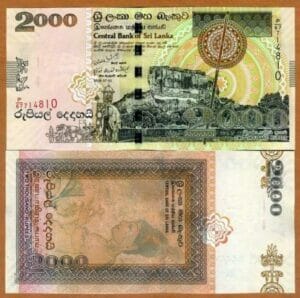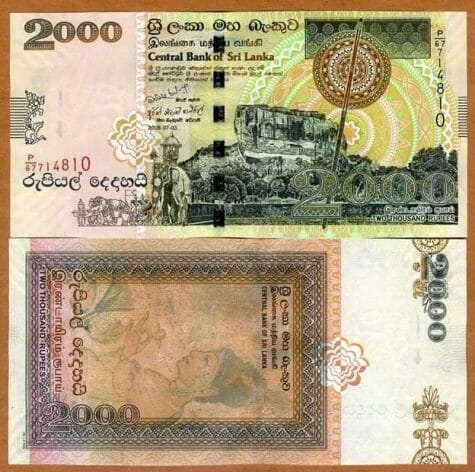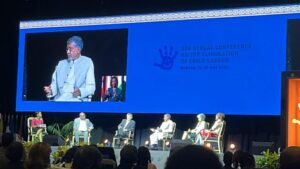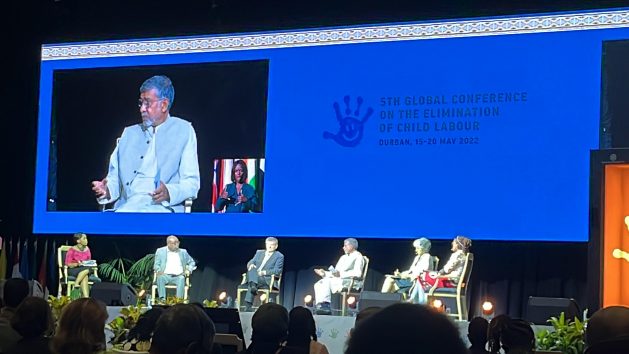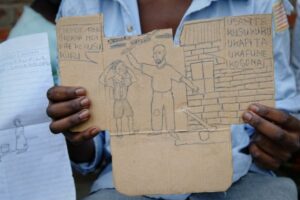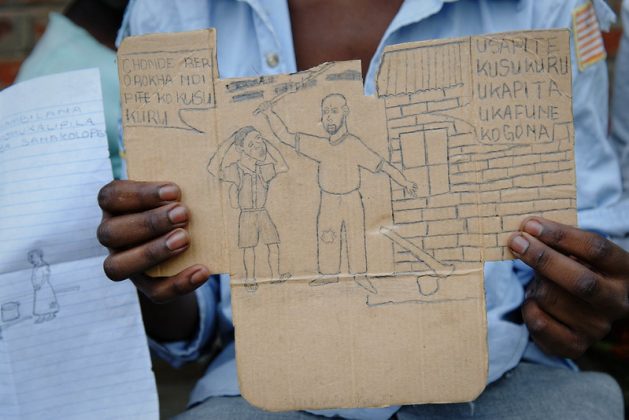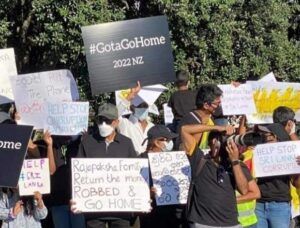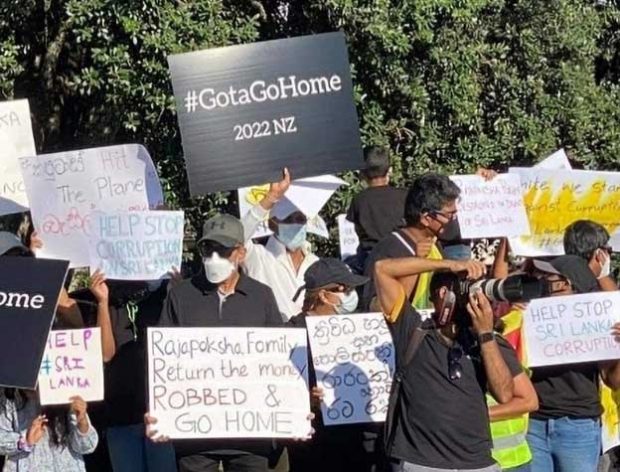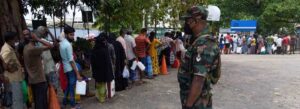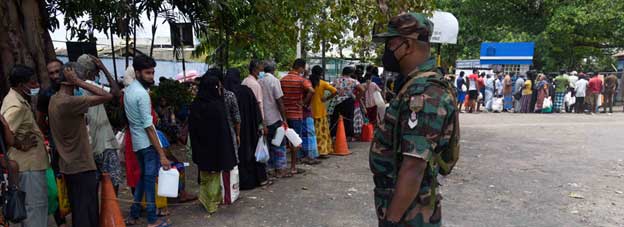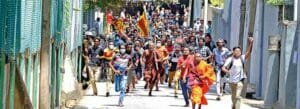
Asia-Pacific, Civil Society, Crime & Justice, Featured, Headlines, Human Rights, Humanitarian Emergencies, TerraViva United Nations
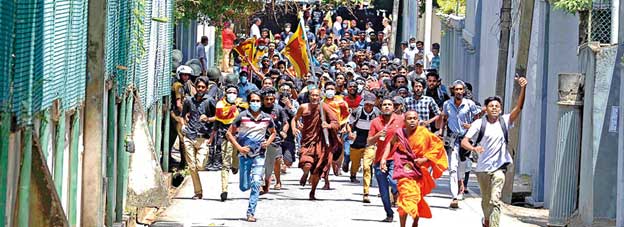
Credit: Sunday Times, Sri Lanka
– Sri Lanka is officially bankrupt and a failed state in all but name. How did a country of 22 million people with a level of literacy on par with most of the developed world end up in such a dire position where the state coffers did not have the measly sum of 20 million dollars to purchase fuel to keep the country functioning beyond the next working day?
Whilst the vast majority of the population have concluded that the blame for this economic armageddon is due to the gluttony of corruption and greed, instigated and enabled by the Rajapaksa family , its acolytes and sycophantic nodding dogs, my own assessment is different.
It is a fact that vast sums , amounting to billions of dollars, were indeed stolen and moved overseas through various illegal networks by the Rajapaksa clan and their accomplices.
Many billions were also squandered on gargantuan white elephant vanity projects in order to glorify the Rajapaksa legacy. However, the seeds for the bankruptcy were sown when the country attained its independence from Great Britain in 1948.
Sri Lanka proudly proclaims itself as one of the oldest democracies in Asia which has had a functioning democracy since 1948. The democratic process has functioned like it should do and parliamentarians elected as they should be and the leaders who represent the aspirations and values of the people appointed as they should be.
Why then has the country reached this abyss?
For democracy to enrich the lives of the people and bring about economic prosperity, two essential and fundamental criteria have to be satisfied. The election of individuals based on merit and the adherence to a universal justice system.
In the absence of meritocracy and a universal justice system, democracy becomes meaningless – an utterly futile process which will not achieve what it is intended for.
Meritocracy is however an alien concept in Sri Lanka!
A universal justice system does not exist in Sri Lanka!
Meritocracy does not exist in Sri Lanka because the cultural DNA is that of a feudal society. Sri Lankan culture promotes race, religion, nepotism, old school connections, social connections, social influences, political influences and servitude (where one class of people are held in perpetual bondage or servants for life ) over and above the attributes and qualities of the individual.
That is a primitive mindset and a recipe for disaster.
In Sri Lanka, people are judged not by the content of their character but by their race, their religion, their socio-economic background, their family connections, the schools they attended, where they live, and who they know. (with apologies to the Rev Martin Luther King for using his words in a manner he did not intend)
When a society functions in such a feudal manner, such values permeate throughout and has a direct correlation with the workings of the justice system. The justice system replicates the culture and ultimately ends up being not fit for purpose.
If a justice system is unable to function based on facts and objectivity, the fabric of society slowly starts to tear apart because the checks and balances needed for a society to progress and for nations to grow, slowly start to dissipate.
Since 1948, Sri Lankan democracy has existed on the basis of nepotism, feudal, racial and religious criteria.
The feudal culture masquerading as democracy has elected the Senanayake family, the Bandaranaike family, the Premadasa family and the Rajapaksa family into the highest offices of the land.
The singular qualification that Prime Minister Dudley Senanayake had was that he was the son of the father.
The singular qualification Prime Minister Mrs Bandaranaike had was that she was the wife of the husband
The singular qualification President Chandrika B had was that she was the daughter of the father and the mother
The singular qualification that Prime Minister Ranil Wickremesinghe (now acting President) has is that he is the nephew of President JR Jayewardene.
The singular qualification that Sajith Premadasa has is that he is the son of the father
The singular qualification Gotabaya Rajapaksa has is that he is the brother of Mahinda
The singular qualification Namal has is that he is the son of the father
The singular qualification Basil has is that he is the brother of Mahinda and Gotabaya.
The singular qualification Thondaman had was that that he was the son of the father.
And this is called Democracy?
This is a banana republic in all but name where Nepotism is the ultimate passport to success – and all done through the ballot box !
This is a culture of entitlement masquerading as democracy , which in turn has given birth to a nation whose leaders are elected not by the content of their character but by their name and association.
It is the equivalent of death by a thousand cuts for what has been spawned is a society where quality has been superseded by mediocrity at best and incompetence at worst.
The end result is the economic armageddon that has destroyed the country.
When leaders of a nation are elected in such a manner, those who serve them and the very fabric of society itself replicates the structural fault line that promotes feudal nepotistic values. It becomes self-fulfilling, promotes mediocrity, encourages malpractice, and creates a culture of corruption.
The legal system, which on paper is there to oversee the rule of law, sadly becomes an extension of the structural fault line which then ensures that impunity and immunity against corruption , theft or even murder, becomes standard operating procedure.
Einstein’s definition of “insanity” is where he states that if we do the same thing over and over again, we end up with the same result. Sri Lanka’s sham democracy since 1948 has been exactly that. A culture based on feudal nepotistic values which enables the same results over and over again.
The people of Sri Lanka must break this vicious cycle if they are ever to escape from the death spiral they have created for themselves.
The critical mass of people who have recently demonstrated for structural change and the complete transformation of government and governance, have achieved more in the last few months than most of the corrupt incompetent deluded half-wits in parliament ever will.
A fundamental new approach to governance based on competence and the rule of law is a pre-requisite to stop Sri Lanka disintegrating into anarchy and chaos.
Does real democracy exist in Sri Lanka ? No !
Real democracy in Sri Lanka doesn’t exist because the culture prevents those with real ability and competence from being elected on merit alone. The vast majority of the electorate simply doesn’t understand that real democracy that provides a positive outcome is based on merit, first, second and last.
It is also unlikely that the majority of the electorate will understand this any time soon.
Can the country find a leader that replicates Singapore’s Lee Kuan Yew ? It is imperative that it does find such a leader who leads by example and who creates a structural transformation of society itself where honesty, integrity and the adherence to the rule of law becomes sacrosanct .
However, does such a leader exists within the current crop of parliamentarians? If not within in parliament , then where ?
A leader who will also ensure that all those who have been culpable in this bringing about this catastrophe are forced to change their ways as well as bringing to justice those who have systematically looted and stolen the countries’ wealth – politicians and non-politicians .
Does a universal justice system exist in Sri Lanka – No !
A justice system in a secular democracy has to be independent of parliament. The justice system is meant to be independent of state machinery and should not be influenced by state operatives.
However, in Sri Lanka the parliament overrules and effectively instructs how the justice system should act which in turn makes the whole system corrupt and not fit for purpose.
The country has huge numbers of legal eagles with more qualifications than they have had hot dinners and who know the finer points of the law better than most in the world.
However, they are rendered impotent and toothless because they are beholden to the political masters they serve – either through choice or otherwise.
The corrosive and toxic nature of a feudal culture which promotes false values over merit and the rule of law ensures even the greatest minds of the land are reduced to corrupt sycophantic nodding ponies.
The legal system in Sri Lanka is also an organised money printing racket where the ordinary citizen or client is entirely at the mercy of the corrupt and dysfunctional bureaucracy.
Those who operate within the system make the equivalent of monopoly money by effectively fleecing the unsuspecting and manipulating a system that is not fit for purpose.
As I write this , the elected leader of the country whose policies and incompetence were the catalyst for the economic meltdown, has fled overseas – the ultimate ” runner viruwa ” !
The man appointed as the acting leader of the nation is one whose party has a single seat in parliament – his own ! And that too not due to electoral votes but due to a corrupt system which enables ” grace and favour ” appointments to parliament.
Such is the abyss that Sri Lanka is in.
What truly beggars belief is that there are millions in the country who still believe that this corrupt rotten s–t show of a system can still be tweaked here and there and made to work.
It cannot and the saddest reality of all this is that millions of Sri Lankans will still cling to their delusional sense of self-importance and righteousness and even at this point where mass starvation is a real possibility, carry on repeating the same mistakes over and over again.
A country whose majority population follows the teachings of one of the greatest philosophers the world has known, is simply incapable of understanding some of the most basic lessons the great sage from Lumbini taught – honesty, integrity, introspection, reflection and truth !
If however, a NEW set of leaders with competence, honesty and integrity, whose primary purpose is to serve the people, can be found within parliament, within the Aragalaya movement , within the commercial sector or a combination of individuals from all three , there is still hope for Sri Lanka.
If however the same corrupt incompetent rotten thieves who still occupy positions of huge powers are allowed to maintain the status quo , the failed state that is Sri Lanka will descent into complete anarchy and bloodshed.
At the end of all that, arising out of the ashes, there will be a breakaway part of the country ………called Eelam !!!!!!!!
Charles Seevali Abeysekera, a semi-retired sales and marketing professional, has worked in the UK mailing industry for over 35 years. He also scribes a blog on current affairs as well as reflections and thoughts on his own life journey “
IPS UN Bureau

